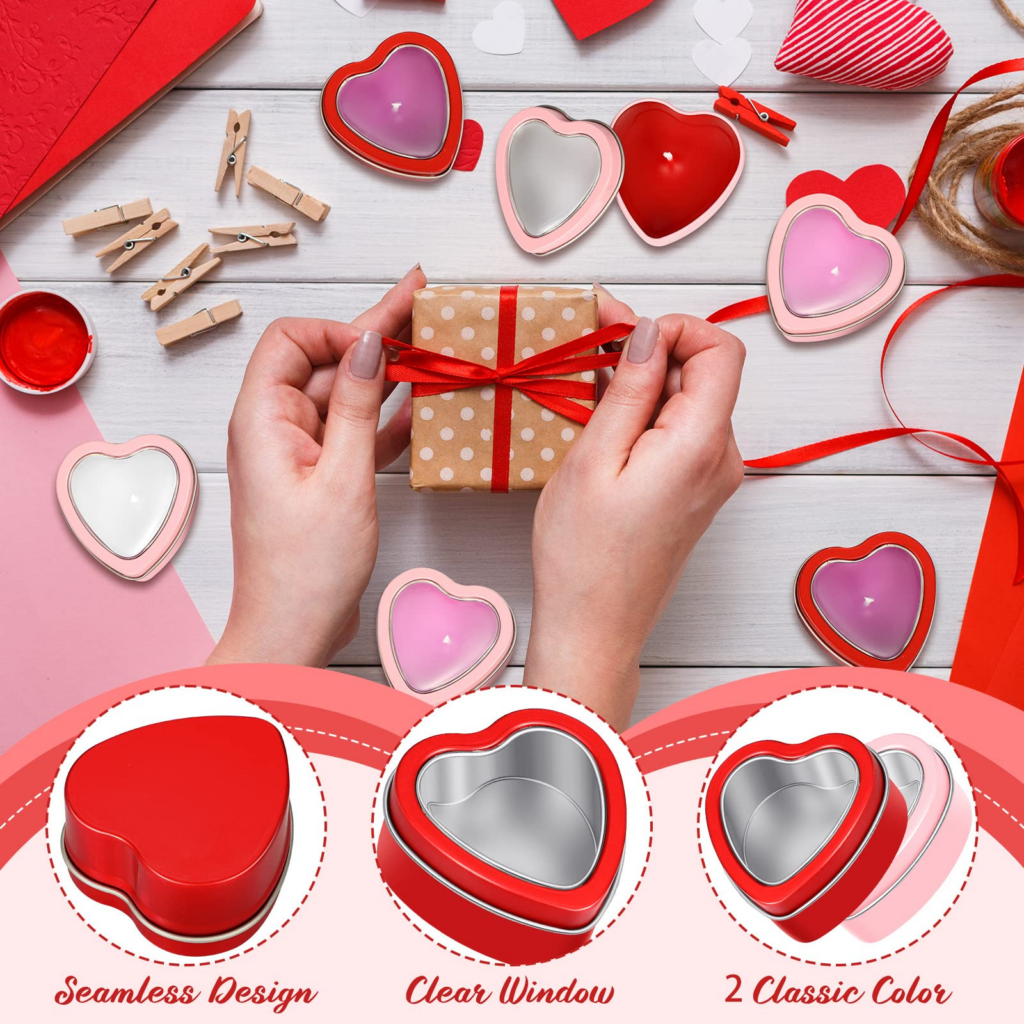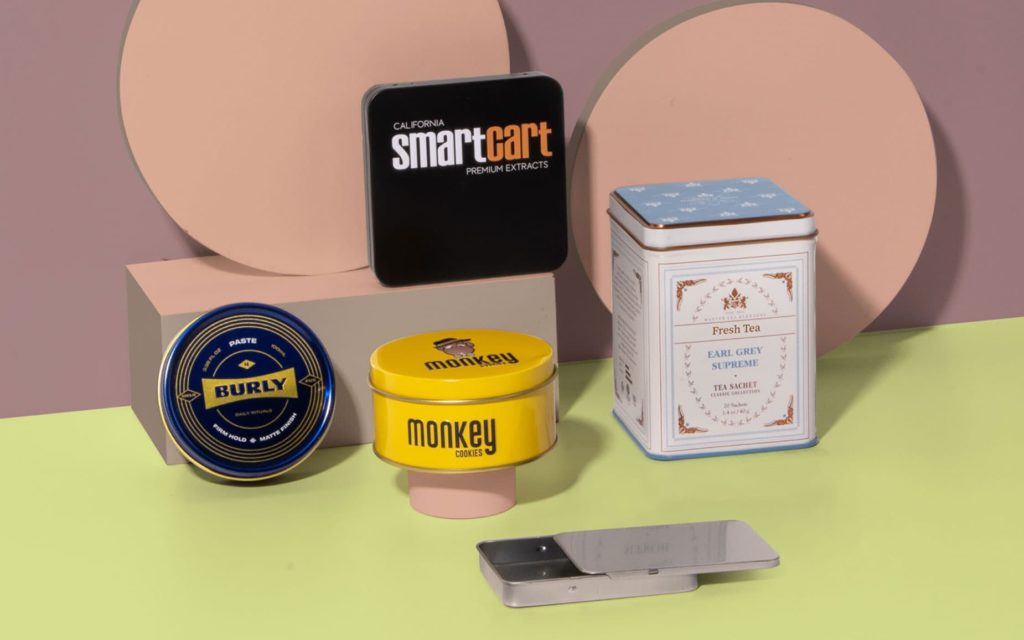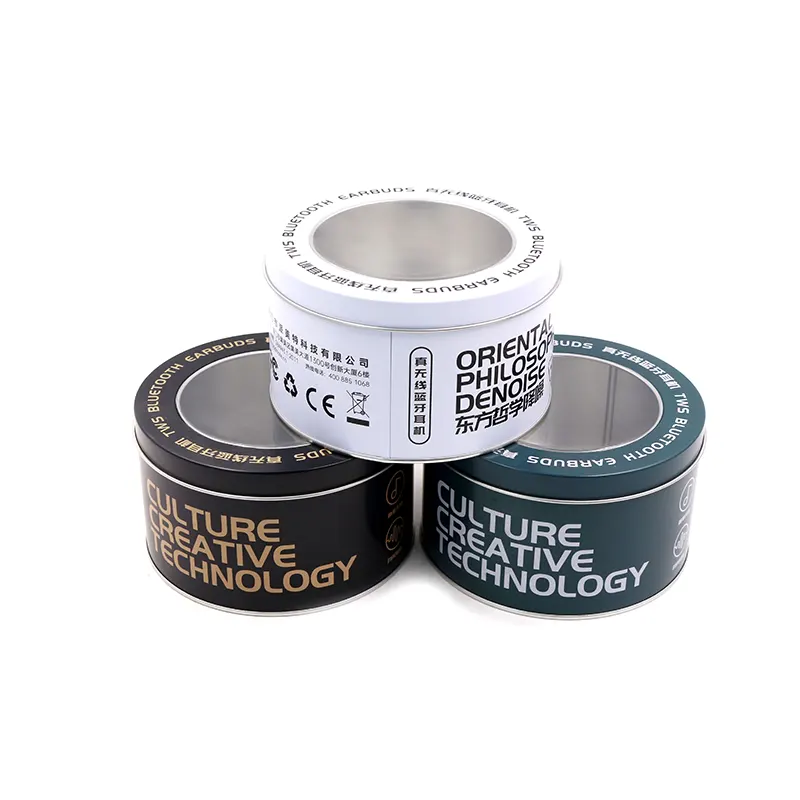Packaging is no longer just a way to protect a product — it’s a statement of values, an extension of brand identity, and increasingly, a marker of environmental responsibility. In a world where consumers are quick to spot (and avoid) wasteful practices, businesses are under pressure to rethink how their products are presented. Enter the modern tin box supplier — a key player in a packaging revolution that blends premium aesthetics with eco-friendly functionality.
Gone are the days when tin packaging was merely a nostalgic nod to biscuit tins on grandma’s shelf. Today, it’s at the cutting edge of Sustainable Packaging innovation, offering durable, reusable, and infinitely recyclable solutions that cater to both brand ambitions and consumer expectations.
Why Tin Packaging is the Future of Sustainable Packaging
At Tin Men United, sustainability is at the heart of our operations. Our eco-friendly materials, green production processes, and dedication to waste reduction ensure that your custom tin boxes not only look good but are also kind to the environment.
Fully Recyclable and Planet-Friendly
- Endless recycling potential
Unlike many plastics that degrade after each cycle, tin can be recycled indefinitely without loss of quality. This makes it a true champion of the circular economy.
- Global recycling infrastructure
Tin is widely accepted by recycling programs, making it easier for consumers to dispose of responsibly.
- No toxic residue
Properly recycled tin leaves no harmful by-products, minimizing environmental impact.
Designed for Reuse and Longevity
- Functional afterlife
Many consumers keep tin boxes for storage — from tea and coffee to craft supplies — extending their lifespan well beyond the product’s use.
- Aesthetic appeal
Premium finishes, embossing, and creative shapes encourage customers to repurpose rather than discard.
- Practical durability
Tin protects products from moisture, UV light, and physical damage, making it perfect for long-term use.
Reducing Carbon Footprints
- Energy savings in recycling
Recycling tin requires far less energy compared to producing new raw materials.
- Optimized logistics
Many tin box manufacturers now design lighter, space-efficient tins to cut down on transport emissions.
- Alignment with ESG goals
Businesses can directly tie tin packaging to their environmental, social, and governance (ESG) reporting.
The Role of Tin Box Suppliers in Driving the Sustainability Movement
Custom Eco-Friendly Designs
- Bespoke branding
Leading tin box suppliers offer custom sizes, shapes, and printing that align perfectly with a brand’s identity.
- Sustainable materials
Use of food-safe coatings, water-based inks, and lead-free paints ensures eco-compliance.
- Consumer engagement
Clever design features, like refillable compartments, increase product interaction and reduce waste.
Integrating Recycled Content into Production
- Post-consumer recycled tin sheets
Minimizes virgin resource extraction while keeping quality intact.
- Responsible sourcing
Partnering with ethical suppliers ensures the entire supply chain supports sustainability.
- Maintaining aesthetics
Even with recycled materials, tin packaging can retain a luxury, flawless finish.
Enabling Brand Storytelling
- Packaging as a message
Sustainable packaging itself becomes part of the marketing narrative.
- Personalized touches
Engraved logos or embossed patterns communicate quality and eco-consciousness.
Industries Thriving with Sustainable Tin Packaging
Gourmet Food and Beverages
- Preservation quality: Airtight tins maintain freshness and flavor far longer than plastic alternatives.
- Premium gifting: Attractive tins elevate chocolates, tea, coffee, or biscuits into luxury gifts.
- Brand loyalty: Customers often keep the tins, turning packaging into a collectible brand reminder.
Cosmetics and Skincare
- Light and air protection: Keeps creams, balms, and powders fresh without additional inner packaging.
- Luxury branding: Metal finishes and smooth textures convey a high-end feel.
- Reusable value: Empty tins can store jewelry, hairpins, or travel-size toiletries.
Retail, Gifts, and Promotional Merchandise
- Increased perceived value: Sturdy packaging makes products feel more substantial.
- Customizable aesthetics: Seasonal designs, limited editions, and embossing boost appeal.
- Memorability: A unique tin becomes a keepsake, reinforcing brand presence in the customer’s home.
Innovations by Tin Box Manufacturers Shaping the Future
Lightweight and Minimalist Engineering
- Material efficiency: Reducing wall thickness without sacrificing durability saves resources.
- Stackability: Flat or modular designs reduce storage and transport space.
- Minimal printing: Understated designs require less ink and often appeal to modern consumers.
Smart and Interactive Packaging Features
- Digital engagement: QR codes and NFC tags connect packaging to brand websites, loyalty programs, or recycling info.
- Multi-purpose formats: Adjustable compartments or refill-friendly designs add ongoing utility.
- Product authenticity: Tech integration ensures customers can verify genuine products instantly.
Compliance and Eco-Certifications
- Regulatory adherence: Meeting RoHS and REACH standards for chemical safety.
- Eco-labels: Achieving certifications like FSC for paper components or CarbonNeutral® status for production facilities.
- Consumer trust: Certifications reassure customers that sustainability claims are genuine.
How to Choose the Right Tin Box Supplier?
1. Examine Sustainability Credentials
- Materials: Confirm whether recycled tin and eco-friendly coatings are standard practice.
- Certifications: Look for ISO environmental management or equivalent credentials.
- Waste management: Ask about how offcuts and production waste are handled.
2. Assess Customization Capabilities
- Design expertise: Can they create unique shapes and finishes tailored to your brand?
- Sampling process: A good supplier provides prototypes before committing to large orders.
- Printing options: From full-color lithography to subtle embossing, versatility matters.
3. Evaluate Production Capacity and Logistics
- Scalability: Can they meet seasonal or sudden demand spikes?
- Global reach: Do they have international shipping expertise?
- Carbon-conscious transport: Check if they use optimized shipping routes or offset emissions.
Conclusion: A Future Wrapped in Tin, Not Plastic
Let’s face it — no one gets sentimental about a throwaway plastic wrapper. But a beautifully designed tin box? That’s a keeper. As more brands embrace tin packaging, we’re seeing an exciting shift toward packaging that’s not only functional but also collectible, reusable, and endlessly recyclable.
Tin box manufacturers are proving that sustainability can be stylish, durable, and commercially smart. For businesses looking to enhance their environmental credentials without sacrificing design appeal, partnering with the right tin box supplier could be the most impactful step they take in 2025. After all, in the new era of packaging, your product deserves a home that’s as responsible as it is beautiful — and that’s a future worth investing in.







